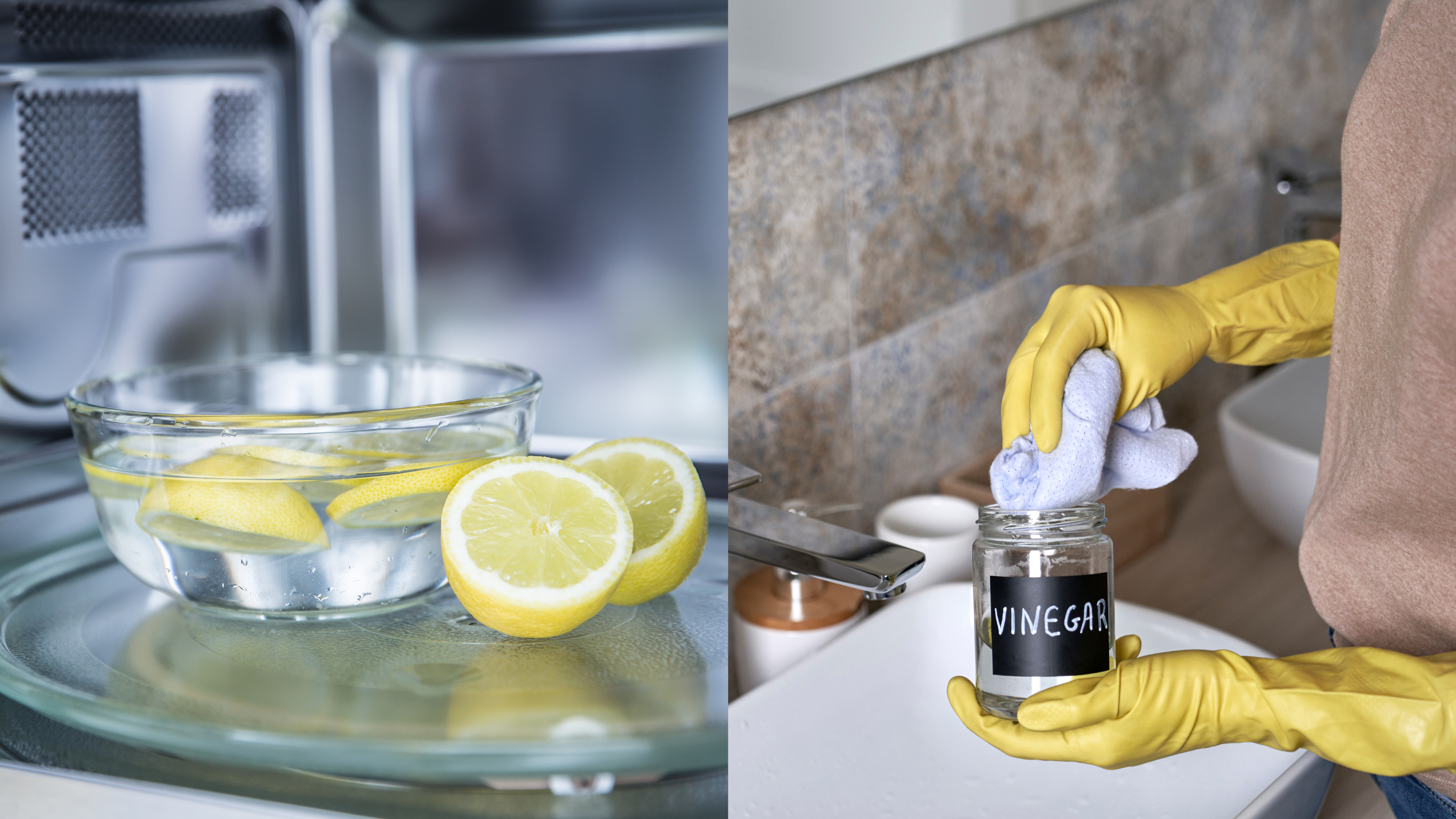
Browsing DIY or natural cleaning methods that’ll ensure every inch of your home stays pristine? Then chances are you’ve come across both lemon and white vinegar, two of the most commonly touted "do-it-all" cleaning solutions out there.
Whether it's the non-toxic nature that's got your attention or you're looking to save a little money, you're probs wondering just how well these cleaning methods work and which one offers the best results.
Personally, I love both options for cleaning, and I'll tell you why. Back when I was a seriously broke college student, I used to moonlight as a cleaner, and two of my go-to products of choice were always lemon juice and white vinegar. Why, I hear you ask? Well, mainly because they were seriously cheap and because they actually tend to work (well, most of the time), especially when it comes to cleaning hacks for all around your space.
While both lemon juice and vinegar can be safely used to clean most things, let's compare which option is best for which task — and why.
Lemon juice vs. vinegar — which is best?
We know that both lemon juice and vinegar can be used for cleaning, but if you’re going to pick just one to use, which should it be and why?
The reality is that both lemon juice and vinegar come with their own advantages and disadvantages when it comes to getting your home sparkling clean. While one might work amazingly for one task, the other may work better for another. Both are very acidic and have similar pHs (think back to biology class). When compared, you'll find that lemon juice has a pH hovering around two and vinegar between two and three.
We tend to use Heinz's cleaning vinegar, which you can buy from Amazon. For cleaning with lemon, we tend to have some lemon juice in our cupboard or a fresh one in our fruit bowl.
Let's take a look at the pros and cons of each.
What are the pros and cons of using lemon juice for cleaning?
Let's start by looking at the pros and cons of cleaning with lemon juice.
Pros of cleaning with lemon juice
- It can neutralize the smell of vinegar
- Cheap to buy compared to store-bought products
- Safe to use around children and animals
- Environmentally friendly
Cons of cleaning with lemon juice
- If mixed with bleach it can cause toxic fumes
- May not work as effectively as store-bought products
What are the pros and cons of using vinegar for cleaning?
Now, let's take a look at the advantages and disadvantages of cleaning with vinegar.
Pros of cleaning with vinegar
- Cheap to buy compared to store-bought products
- Safe to use around pets and kids
- Environmentally friendly
- Diverse cleaner that can be used on many surfaces types
Cons of cleaning with vinegar
- Even when mixed with water it can have a strong smell
- Fails to cut through grease effectively
What are the best uses of lemon juice for cleaning?
We’ve established that lemon juice can work well as a cleaning formula but what are the bests tasks to use this acidic juice for?
From my experience working as a cleaner (and from all my #CleanTok scrolling) when I was younger, I’ve found that lemon juice is great for the following:
- Removing nasty odors from the microwave and fridge
- Blasting through limescale
- Polishing pots and pans
- Removing stains from natural stone countertops
- Descaling kettles
- Cleaning the toilet
- Removing stains from dishes and food storage containers
- Killing bacteria on chopping boards
- Deodorizing the garbage disposal
- Cleaning mirrors and glass
- Cleaning taps — and other stainless steel surfaces, like shower heads
What are the best uses of white vinegar for cleaning?
Like lemon juice, vinegar has lots of uses, and can be used in a diverse number of ways, such as:
- Removing stains from mugs
- Cleaning windows and mirrors
- Cleaning the toilet
- Cleaning stainless steel surfaces — like taps and showerheads
- Descaling the kettle
- Removing limescale
- Killing weeds
Overall, lemon juice and white vinegar are both smart options to have hanging around your house when it comes to cleaning. It's just a matter of knowing which is best for certain chores.







